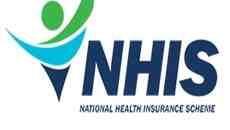National Health Insurance Scheme (Ghana)
National Health Insurance Scheme (NHIS) is a form of national health insurance established by the Government of Ghana in 2003. The scheme provides equitable access and financial coverage for basic health care services to Ghanaian citizens. The NHIS is part of Ghana's commitment to the Universal Health Coverage (UHC) and the Sustainable Development Goals (SDGs), particularly goal number 3 which aims at ensuring healthy lives and promoting well-being for all at all ages.
Background[edit | edit source]
The NHIS was established by the Government of Ghana through the National Health Insurance Act, 2003 (Act 650). Before the introduction of NHIS, Ghana operated a "cash and carry" health care system, where the cost of health care services was borne directly by the patient at the point of care. This system posed significant financial barriers to a large portion of the Ghanaian population, particularly the poor and vulnerable, limiting their access to necessary health care services.
Objectives[edit | edit source]
The primary objective of the NHIS is to provide all residents of Ghana access to quality health care services without the need to engage in direct financial transactions at the point of care. The scheme aims to:
- Remove financial barriers to health care services.
- Improve health care access for the underserved and vulnerable populations.
- Ensure a broad package of health care services that covers most diseases and health conditions.
- Promote preventive health care to reduce the burden of preventable diseases.
Coverage[edit | edit source]
The NHIS covers a wide range of health services from outpatient visits, inpatient care, maternity care, emergency care, and surgeries to the provision of some prescription drugs. However, it excludes some high-cost treatments such as organ transplants and dialysis for chronic kidney failure, except under specific conditions.
Funding[edit | edit source]
The scheme is funded through a combination of sources including:
- The National Health Insurance Levy (NHIL), which is a 2.5% levy on goods and services collected as part of the Value Added Tax (VAT).
- Contributions from the formal sector employees deducted at source by the Social Security and National Insurance Trust (SSNIT).
- Premium payments from the informal sector, which are graded according to the ability to pay.
- Government budget allocations.
Enrollment[edit | edit source]
Enrollment in the NHIS is open to all residents of Ghana, regardless of their socio-economic status. Formal sector employees are automatically enrolled through their SSNIT contributions, while individuals in the informal sector and the unemployed are required to register with the NHIS and pay a premium based on their income level.
Challenges[edit | edit source]
Despite its successes, the NHIS faces several challenges including:
- Financial sustainability due to the rising cost of health care services and the increasing demand for coverage.
- Limited coverage of some high-cost treatments and medications.
- Delays in the reimbursement of funds to health care providers, which can affect the quality and availability of services.
- Fraud and abuse of the system.
Future Directions[edit | edit source]
The Government of Ghana continues to explore ways to enhance the efficiency and sustainability of the NHIS. This includes efforts to expand the coverage of services, improve the management of funds, and increase the use of digital technologies to streamline operations and reduce fraud.
Navigation: Wellness - Encyclopedia - Health topics - Disease Index - Drugs - World Directory - Gray's Anatomy - Keto diet - Recipes
Search WikiMD
Ad.Tired of being Overweight? Try W8MD's physician weight loss program.
Semaglutide (Ozempic / Wegovy and Tirzepatide (Mounjaro / Zepbound) available.
Advertise on WikiMD
WikiMD is not a substitute for professional medical advice. See full disclaimer.
Credits:Most images are courtesy of Wikimedia commons, and templates Wikipedia, licensed under CC BY SA or similar.Contributors: Prab R. Tumpati, MD

